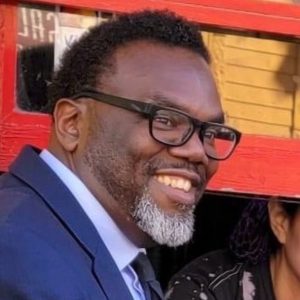August 18, 2008 – Hundreds of South Side residents rallied at Michael Reese Hospital with community organizations Thursday calling for inclusion in Olympics planning and a legally-binding community benefits agreement to be included in Chicago’s final application for the 2016 Olympics.
With a dozen community and labor organizations signed on, Communities for an Equitable Olympics 2016 has written Mayor Daley and Chicago 2016 chair Patrick Ryan seeking a meeting, said Gregory Kelley of SEIU Healthcare.
The group supports the Olympics bid but said in a statement that “we do not believe that the Olympics should come to Chicago without a community-led benefits agreement process.”
“We don’t want to sit on an advisory committee; we want a seat at the planning table,” said Deshun Bray of the Kenwood Oakland Community Organization . “Our communities and our lives are no games.”
“We want to make sure the winds of change don’t turn into a hurricane for our communities,” said Denise Dixon of Action Now.
Noting the history of public and private disinvestment in communities now slated for Olympics development, Rev. Booker Vance of SOUL and Metropolitan Area Congregations said, “We have no intention of giving up our homes and jobs so that others can play games on the graveyards of our neighborhoods.”
With the closing of Michael Reese Hospital, where many SEIU members worked, the 2016 Olympics start with a deficit in terms of living-wage job creation, Kelley said. “The impact of Michael Reese’s closing will be felt throughout the Bronzeville community, both with the loss of jobs and the loss of an important safety-net hospital,” he said.
CEO leaders detailed their demands for a community benefits agreement to be included in the city’s Olympics bid. These include:
— Protection from forced residential evictions, including by eminent domain, with relocation benefits for residents and homeless shelters displaced by the Olympics; and affordable housing built at the Olympics Village, with affordability keyed to community — not regional — income levels;
— All Olympics-related jobs to pay a living wage, with 80 percent of development project jobs guaranteed to neighborhood residents and 50 percent of construction contracts to women and minority owned businesses;
— All public subsidies for the Olympics, including TIFs, open to public inspection; a fund from Olympic revenue to achieve equity in per-pupil spending across CPS; funds for parks and community centers;
— A plan for business development including four grocery stores;
— A public safety consortium with significant youth participation to ensure neighborhood youth are not “profiled.”
With the three largest new venues — the Olympic Village, the Olympic Stadium and the Aquatic Center — planned for low-income South Side neighborhoods, speakers at the rally pointed to a 2007 Chicago Urban League study which noted displacement of low-income residents and minority business bankruptcies that resulted from the 1988 Atlanta Olympics.
According to the study, 30,000 low-income Atlantans were displaced by rent increases and public housing demolitions near Olympic sites, and mixed-income developments which replaced low-income housing was not affordable to residents. “The Atlanta experience shows that preserving affordable housing in neighborhoods in proximity to the games should be a priority,” CUL concluded.
In addition, minority businesses in Atlanta suffered bankruptcies after the International Olympics Committee diverted pedestrian traffic away from historically black Auburn Avenue, where the city had sold street vending licenses to African-American owned businesses. The city ended up paying more to settle lawsuits over the “street vending fiasco” than it had taken in for the licenses, according to CUL.
“In past host cities, bids have involved limited consultation and an incomplete evaluation of the social and economic impacts,” CUL concluded. “The average citizen has received little benefit and many even experience costs such as the destruction of existing communities for new projects and increased housing costs.”
CEO 2016 plans to continue the campaign for community benefits throughout the run-up to the 2016 Olympics, leaders said.

![Reblog this post [with Zemanta]](http://img.zemanta.com/reblog_e.png?x-id=5ab21146-12d0-48b0-af2b-c7f4c0947902)





Be First to Comment